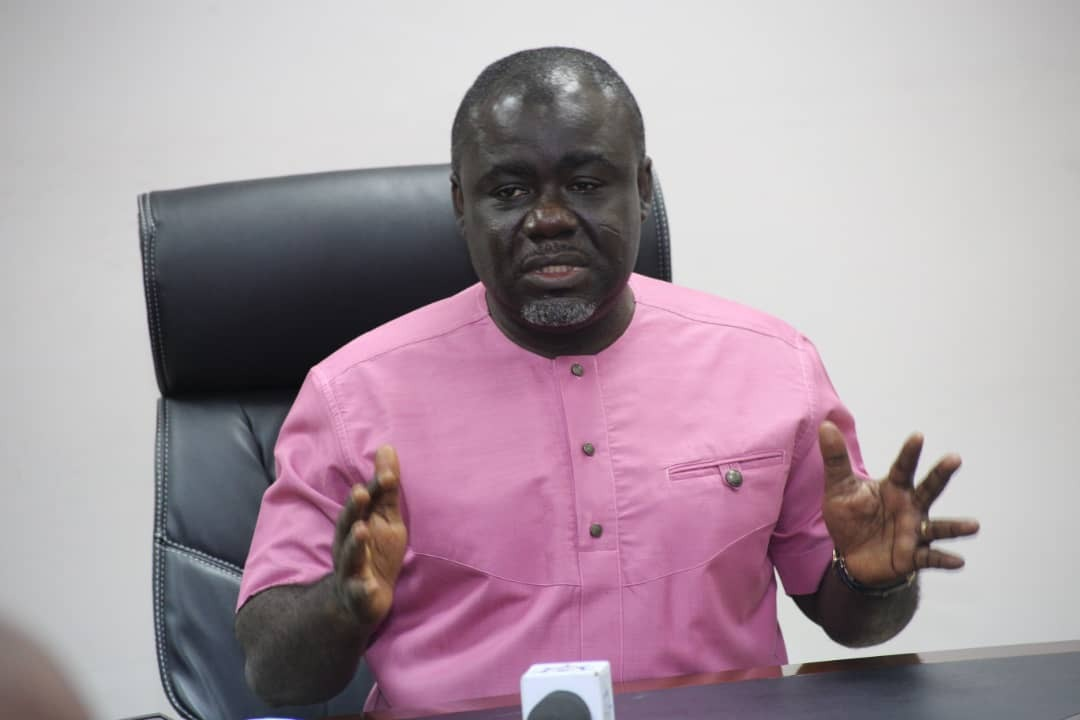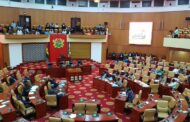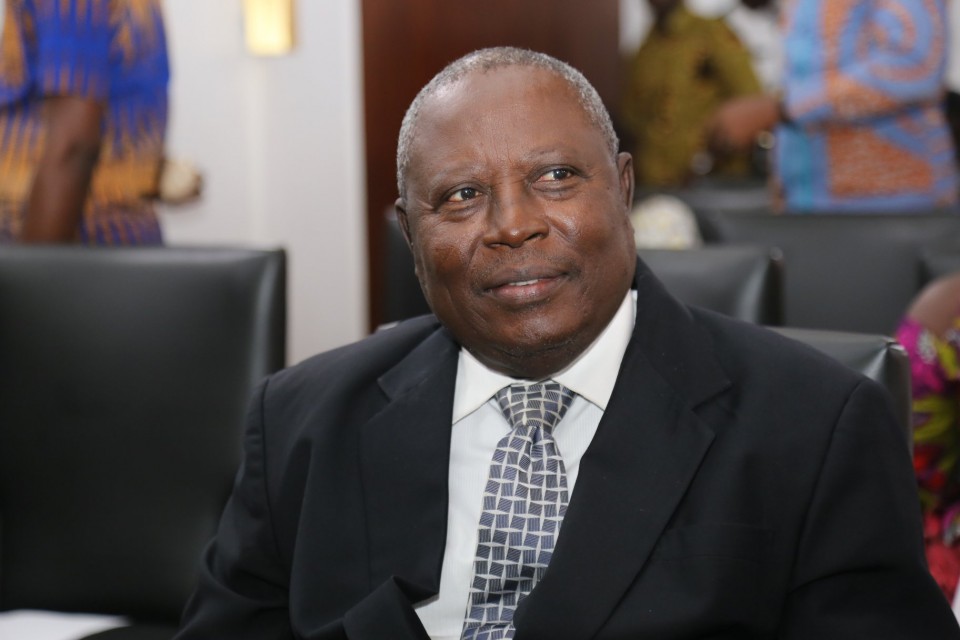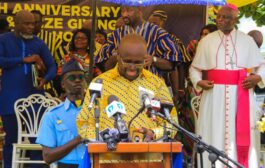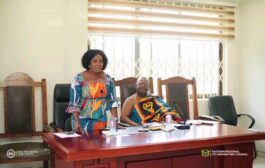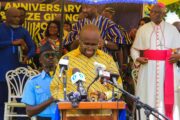The Minister for Transport, Kwaku Ofori Asiamah has stated that the transport sector plays a crucial role in the smooth functioning of our economy and is essential in promoting social cohesion.
To him, Ghana’s transport sector has become a major source of greenhouse gas emissions due to the use of fossil fuel-based vehicles.
Speaking at the stakeholder consultations forum on the development of a National Electric Vehicle Policy for Ghana held in Koforidua, Hon Kwaku Asiamah affirmed that the data provided by the DVLA, as of 2022, there were about 3.2 million registered vehicles in our country adding that 72 percent are powered by petrol engines, 27 percent by diesel engines, and less than 1 percent by LPG and other energy sources. The high dependency on fossil fuels, combined with other factors such as traffic congestion, has resulted in the transport sector becoming a net emitter of Greenhouse Gases (GHG).
He indicated that experts have explained that emissions from vehicles are not only bad for our planet, but they are also bad for our health.
Hon Kwaku Asiamah said that air pollution has been partly blamed for cases of asthma, bronchitis, and premature death.
He added that health impacts of localized air pollution have been studied to last a lifetime, with the effects borne out in asthma attacks, lung damage, and heart conditions.
He averred that the United Nations has warned that if global warming is allowed to rise above 1.5 degrees Celsius, it will have disastrous consequences adding it is important that Ghana take the next logical step to put an end to the climate emergency.
Hon Kwaku Asiamah said that countries around the world are taking action to reduce their carbon footprint in response to the Paris Climate Accord.
Hon Kwaku Asiamah stated that the United Kingdom, for instance, has committed to achieving a net-zero emissions by the year 2050 adding that Europe is working to halt the production and sale of diesel vehicles by 2030.
He cited that Norway, which is highly dependent on oil and gas exports, has also committed to ending the sale of vehicles powered by fossil fuels by 2025.
He said that as the world moves away from fossil-fueled vehicles to electric vehicles, it is necessary that Ghana moves with the times to ensure that our country does not become a convenient dumping ground for used fossil-fueled vehicles.
He indicated that it is also important to take advantage of the opportunities that abound in the new development paradigm and that is the transition to a Net-Zero Emission Future.
He explained that it is for these reasons that the Ministry of Transport with support from the Climate Technology Centre Network and the UNEP Copenhagen Centre on Climate Change based in Denmark developed an Electric Mobility framework in June, 2022.
He added that the framework consequently gave impetus to the development of a draft National Electric Vehicle Policy to serve as a key input for a comprehensive implementation plan and investment strategy for smooth transition to electric vehicles.
He said that the National policy development process however, calls for extensive consultations to solicit inputs from relevant stakeholders. The first phase of this Consultative process commenced in Ho, the Regional Capital of the Volta Region on 14th June, 2023.
He added that the consultation saw the participation of Stakeholders from Regional Administrations, Ministries, Departments and Agencies, private sector organizations, civil society organizations, transport operators among others. Since then, consultations have been held in eleven (11) regional capitals namely; Ho, Nalerigu, Bolga, Damongo, Tamale, Dambai, Sunyani, Techiman, Goaso, Sefwi Waiso and Takoradi. In the coming days, the remaining Regions would also be consulted on the draft policy.
He reaffirmed that the next phase of the consultative process will be Focal Group consultations with key interest groups such as Vehicle Assemblers/ Manufacturers, Transport Operators, Spare Parts Dealers and Garages, the National Council of Persons with Disabilities, Parliamentarians, National House of Chiefs, the Media and Civil Society Organizations (CSOs). This is to ensure that the views of all transport users are taken on board in the Policy.
Source: Solomon Nartey



